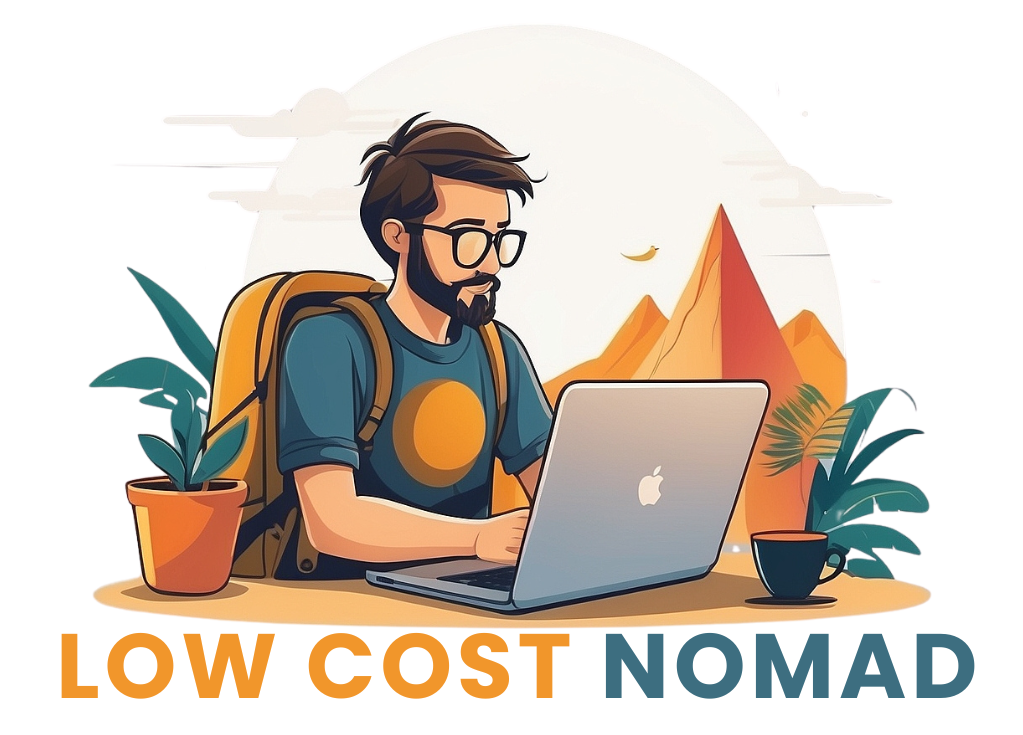Imagine working from a beach in Thailand, a mountain cabin in Colorado, or a cafe in Rome. That’s the dream for many digital nomads. These are people who use technology to earn a living while traveling the world. But as exciting as this lifestyle is, it brings up important questions about running your business legally. One big question many digital nomads ask is: Do you need a business license as a digital nomad?
It sounds simple, but the answer is often tricky and less straightforward than for a traditional business. Unlike having a single office in one town that clearly needs a local permit, digital nomads move around frequently. This makes figuring out rules about business licenses confusing. This article will break down this topic in a simple way, helping you understand when and why you might need one, what form it might take, and what steps you can take to stay compliant.
What Exactly is a Business License Anyway?
Let’s start with the basics. What do people mean by a “business license”? Think of it like official permission from a government body (like a city, county, state, or country) to operate your business legally within their area. It’s different from just coming up with a name for your business or deciding if you’re a solo operator or a company.
A business license often shows that you’ve met certain local requirements or registered your business for tax purposes in that specific place. For example, a restaurant needs health permits and local operating licenses. A shop needs permits to sell goods in a certain zone. For many online service-based businesses common among digital nomads (like writing, coding, design, virtual assistance), the licensing requirements are often simpler, but they still exist in many places.
These licenses or permits are typically tied to a specific geographic location. This is where the confusion for digital nomads begins, as their physical location changes constantly.
Why is This Question So Tricky for Digital Nomads?
If you ran a physical shop in London, you’d clearly need a business license from the relevant London authority. Easy. But as a digital nomad, your “place of business” isn’t always a fixed building. Are you operating where your clients are located? Where you are physically staying *right now* (e.g., a rented apartment in Bali)? Or is it determined by where your business was first legally registered or where you maintain a permanent address?
The constant movement and the borderless nature of online work are the main reasons for the confusion surrounding a business license as a digital nomad. Laws about business licenses were mostly created for businesses with a physical, fixed location within a specific town, city, or state. The digital nomad lifestyle doesn’t fit neatly into these older legal structures. This creates a gray area that many nomads struggle to understand and navigate correctly.
The Most Important Factor: Your Business’s Legal Home Base
For most digital nomads, the requirement for a business license or registration is tied less to the temporary country or city they are visiting and working from, and more to where their business is legally established or registered. Think of this as your business’s official “home base.”
Where is this home base? It’s usually the location where you officially set up your business entity. This might be:
- Your home country or the country where you were last a tax resident.
- A specific state or province within that country (e.g., Delaware or Wyoming in the USA are popular for LLCs).
- A country where you have chosen to establish tax residency and potentially register your business.
Even if you travel the world and never set foot in this “home base” location for years, your business’s legal status is linked to it. You are likely required to follow the business registration and licensing rules of *that specific location* (state, county, city), even if you now live and work from anywhere with an internet connection.
Example: David is a freelance writer originally from Florida, USA. Before becoming a digital nomad, he registered his business as a sole proprietorship with his local county clerk’s office in Florida. Now, he spends his time working from co-working spaces in Mexico, Spain, and Vietnam. Even though he’s not physically in Florida, his business is legally based there. He still needs to check if his Florida county requires him to renew his business tax receipt or license annually. He typically does *not* need a business license from Mexico, Spain, or Vietnam just because he is working there for clients who are mostly in the USA or Europe.
This concept of a “home base” or domicile for your business is crucial. It’s the starting point for figuring out your registration requirements.
Different Types of Business Registration (It’s More Than Just One “License”)
The term “business license” is often used generally, but it can refer to several different types of registrations or permissions you might need. Understanding these different types is important:
- Entity Registration: This is where you formally create your business structure. Are you operating simply as yourself (a sole proprietor or sole trader)? Or have you registered a separate legal entity like a Limited Liability Company (LLC), a corporation (Inc. Ltd.), or a partnership? Registering an LLC, for instance, creates a legal separation between you and the business. This registration is done at the state level (in the US) or national level (in many other countries) and requires ongoing compliance (like annual reports). This is a fundamental step for many serious digital nomad businesses.
- General Business Operating License/Permit: Some cities, counties, or states require *any* business operating within their jurisdiction to get a general license or permit, often called a “business tax certificate” or “occupational license.” This is often tied to the address where your business is registered. Even if your “address” is just your registered agent’s address or your old home address, this requirement can still apply depending on the local rules.
- Professional or Industry-Specific Licenses: Certain professions require special licenses regardless of where you are located (e.g., lawyers, doctors, accountants). While most digital nomads aren’t providing services that require these strict licenses *across borders*, if your profession requires a license in your home base, you must maintain it. Less common for typical online nomad work.
- Sales Tax or VAT Registration: If you sell physical products or certain digital services, you might need to register to collect sales tax (like in the US) or VAT (in Europe and elsewhere). This is separate from a general business license but is another form of business registration related to taxes.
For the average digital nomad providing online services, the main concern is usually the combination of **Entity Registration** (if they choose to form one like an LLC) and the potential need for a **General Business Operating License** in their chosen business home base (state/county/city).
Why You Might Need Registration Even Without a Physical Office
You might think, “I don’t have an office, I just work from my laptop, so I don’t need a license.” However, the concept of “operating a business” isn’t always tied to a physical location in the traditional sense, especially in the eyes of the jurisdiction where your business is *legally registered*. If your business is formally registered in a specific state or country, that location expects you to comply with its rules for businesses, regardless of where you are physically working.
Your legal presence, even just on paper with a registered agent, can be enough to trigger registration or licensing requirements in that location. Governments use these registrations to keep track of businesses operating under their authority, for tax purposes, and for regulation.
Example: Maria decided to form an LLC for her social media consulting business. She chose to register it in her home state, Colorado. Colorado state requires an annual report for LLCs, and her specific county in Colorado requires businesses registered there to obtain a county business license and pay a small annual fee. Even though Maria now spends most of her year in Portugal on a digital nomad visa, she still needs to file the annual report with Colorado state and pay the annual fee for her county business license. Her business is legally a Colorado business, subject to Colorado rules.
What Are the Risks of Not Getting a Required Business License or Registration?
Ignoring the rules about business licenses and registration, even if you’re a digital nomad, can lead to problems. While the enforcement might feel less direct when you’re abroad, these are potential issues:
- Fines and Penalties: Governments can fine you for operating without the necessary registrations or licenses. These fines can increase the longer you are non-compliant.
- Legal Issues: If there’s a legal dispute involving your business (with a client, partner, etc.), not being properly registered can complicate things and potentially weaken your legal standing. In some cases, you might not even be able to use the court system to resolve business disputes if you’re not legally registered to operate.
- Difficulty Opening a Business Bank Account: Banks almost always require proof that your business is a legitimate legal entity. This proof often involves showing your business registration documents or your business license. Without a separate business bank account, it’s very hard to keep your business and personal finances separate, which is crucial for managing money, filing taxes, and limiting personal liability (especially if you formed an LLC).
- Lack of Credibility: Some clients, particularly larger companies, might ask for your business registration number or other proof of legitimacy before hiring you. Not having it can make you seem unprofessional or unreliable.
- Problems with Payment Processors: Services like Stripe, PayPal, and others often require business verification, which can include providing details about your business registration or license to comply with financial regulations.
- Tax Problems: Business registration and tax registration (getting a tax ID number like an EIN in the US) are often linked. Skipping registration can lead to issues with properly reporting your business income and paying taxes.
While you might operate under the radar for a while with a very small operation, these risks become more significant as your business grows, earns more money, and interacts with more clients and services.
How to Figure Out If You Need a Business License As a Digital Nomad (Your Action Steps)
Since there isn’t a single answer that fits every digital nomad, how can *you* figure out your specific needs? Here’s a simple process to follow:
- Pinpoint Your Business’s Legal Home Base: Where was your business originally registered? If you haven’t registered it yet, where do you have a permanent address or a strong connection that could serve as your business’s domicile? This is usually the country and potentially the state/province where you have the closest ties or where you were last a tax resident.
- Identify Your Business Structure: Are you just operating as yourself (a sole proprietor)? Or have you formally registered an entity like an LLC, corporation, or partnership? This structure dictates some registration requirements at the state/national level.
- Research Requirements in Your Home Base:
- Start with the state or national level government website where your business is or will be registered. Look for sections on “starting a business,” “business registration,” “business licenses,” or “tax permits.”
- Next, research the requirements at the local level (county and city) where your business is registered or where you maintain a registered agent’s address. Local rules vary greatly – some cities require *every* type of business to get a general license, while others only require it for specific types of businesses or those with physical locations.
- Look for information specific to your *type* of business (e.g., “online services,” “consulting,” “freelancing”), although general business licenses are often the main requirement for remote service businesses.
- Consider Your Activities in Temporary Locations: As mentioned, you typically do *not* need a local business license in the country you are simply visiting while working remotely for foreign clients. However, if you plan to actively market to or provide services to clients *within* the temporary country you are visiting, this could potentially trigger local registration or tax requirements there. This is less common for typical digital nomads but is something to be aware of.
- Consult a Professional: This is often the most reliable and recommended step for digital nomads.
Why Getting Professional Advice is Crucial for Digital Nomads
Because the legal landscape for digital nomads is still evolving and laws in many places haven’t fully caught up to location-independent work, figuring out your exact requirements can be complex. The rules about business licenses, tax residency, and where you can legally work are interconnected but distinct, and it’s easy to get them confused.
A qualified accountant or lawyer who understands small businesses and ideally has some familiarity with remote work or international aspects can provide tailored advice. They can help you:
- Understand exactly what registrations, licenses, or permits are required in your specific “home base” location based on your business structure and activities.
- Ensure you comply with ongoing requirements like annual reports or license renewals.
- Advise on the best business structure for your needs (e.g., Sole Prop vs. LLC).
- Help you understand how business registration connects with your tax obligations, which are also critical for digital nomads.
- Avoid costly mistakes or overlooking important legal requirements.
While it costs money, a consultation with a professional can save you significant time, stress, and potential fines in the long run. Think of it as an investment in the legal health of your business.
Related But Different: Taxes and Visas
It’s important to remember that needing a business license as a digital nomad is a separate question from your tax obligations or your ability to legally reside and work (remotely) in a foreign country. While they are all part of operating legally as a digital nomad, they are governed by different rules:
- Taxes: As a digital nomad, you will need to pay taxes somewhere. Where you pay taxes depends on complex rules about tax residency, which consider factors like how long you spend in different countries, where your permanent home is, and where your business is registered. Business licenses are generally about the *permission to operate* from a location, while tax registration is about reporting your income and paying taxes on it. You often need to be registered to get a tax ID, but they are distinct legal concepts.
- Visas: Your ability to legally enter and stay in a country is determined by visa and immigration laws. Working remotely while on a tourist visa can be against the terms of that visa in many countries, even if you are working for clients outside that country and have a business license from your home base. Specific digital nomad visas offered by some countries allow you to legally reside there while working remotely, but they don’t usually change your business registration needs in your original “home base.”
Navigating taxes and visas are huge topics on their own for digital nomads, but for the specific question of needing a *business license*, the focus should primarily be on the requirements of your business’s legal domicile or home base.
Pros and Cons of Getting Business Registration/License (When Required)
If you determine that you need a business license or formal registration in your home base, here’s a quick look at the benefits and drawbacks:
Pros:
- Legal Compliance: You operate your business legally, avoiding potential fines and issues.
- Easier Business Banking: Essential for opening a dedicated business bank account, which simplifies financial management and separation.
- Increased Credibility: Makes your business look more professional to clients and partners.
- Access to Services: Needed for many business tools, payment processors, and loan applications if you ever need them.
- Clearer Legal Standing: Provides a foundation if you ever need to engage in legal matters related to your business.
- Peace of Mind: Knowing you’re compliant reduces stress.
Cons:
- Fees: Often involves initial registration fees and sometimes annual renewal fees.
- Paperwork: Requires completing forms and potentially filing annual reports.
- Research Effort: Can take time to research the exact requirements for your specific location and business type.
- Maintaining a Registered Address: May require having a physical address or using a registered agent service in your home base location.
For any digital nomad who is serious about their work and wants to build a sustainable, legitimate business, the benefits of proper registration and licensing (where required) far outweigh the administrative effort and costs.
Tips for Digital Nomads Regarding Business Registration
To make the process less intimidating, here are a few practical tips:
- Address it Early: Don’t put off researching your registration needs. It’s easier to set things up correctly from the start.
- Identify Your True Home Base: Be clear about where your business is legally registered or where you have the strongest legal ties. This is your primary focus area for registration rules.
- Use Your Registered Agent: If you form an LLC or corporation, you’ll need a registered agent in that state/country. Their address is key for official notices, including license renewals.
- Keep Everything Organized: Store digital copies of all your business registration documents, licenses, and confirmations of renewals.
- Separate Business and Personal Finances: This is critical for tracking income/expenses for tax purposes and is much easier with a dedicated business bank account, which requires proof of registration.
- Factor in Costs: Include registration and renewal fees in your business budget.
- Stay Updated: Occasionally check the government websites in your business’s home base for any changes to requirements.
Conclusion: Navigating Business Licenses as a Digital Nomad
So, circling back to the main question: Do you need a business license as a digital nomad? The most accurate simple answer is: You likely need some form of business registration or license, but it’s primarily required by the location where your business is legally established or registered (your “home base”), rather than the many temporary locations you work from.
The digital nomad lifestyle is exciting and offers incredible freedom, but it doesn’t exempt you from operating legally. While you might not need a specific “digital nomad license” that magically works everywhere, you do need to ensure your business complies with the rules of its legal origin point.
Navigating these requirements can feel complicated because laws weren’t designed with the modern digital nomad in mind. Trying to piece together information from various government websites can be overwhelming.
That’s why the most practical and recommended step for any digital nomad running a serious business is to consult with a professional – an accountant or lawyer – who is knowledgeable about business registration in your specific home base location and ideally understands the nuances of online, location-independent businesses. They can provide clear guidance tailored to your unique situation, helping you understand exactly what registrations or licenses you need, how to get them, and how to maintain compliance.
Taking the time to properly register and license your business where required provides legal protection, builds credibility, simplifies financial management, and ultimately gives you the peace of mind to focus on running your business and enjoying the amazing experience of being a digital nomad, knowing you’re operating above board.




